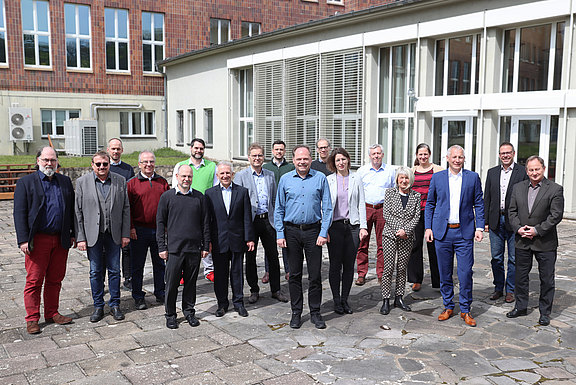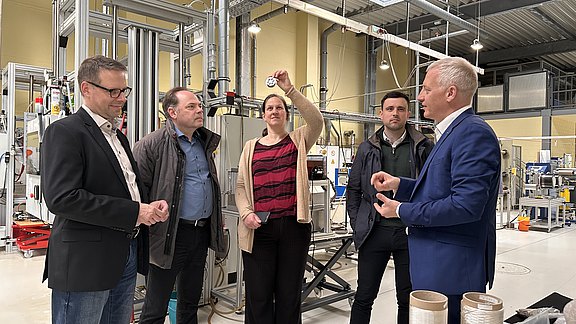As a co-initiator of the German Industrial Research Association Konrad Zuse, which was founded in 2015 and is now an umbrella organisation for more than 80 business-related research institutions in Germany, TITK hosted a meeting of the Innovation Council for the first time on 25 April 2024. The 18-member working committee of the Zuse Association met in Rudolstadt to discuss the innovation potential and impact of the current political framework conditions for SMEs and business-related research, which plays a central role in the transfer of research results into practical applications in industry.
"Especially in times in which we are increasingly emphasising technological sovereignty and at the same time experiencing major technological change, we urgently need innovative companies that provide impetus and generate growth as technology leaders. Only in this way will we be able to harmonise ecology and economy and ensure our prosperity in the long term.“, says Benjamin Redlingshöfer, Managing Director of TITK.
Alongside the various working groups of the Innovation Council, the clusters AI / Digitalisation and Bioeconomy also reflect the current challenges and fields of action.
The latter is also of central importance at TITK: expertise and skills for industrially scalable solutions that have been built up over decades of activity are available here as a contribution to the textile circular economy and are in high demand from Thuringian companies as well as national and international partners.
In order to expand these core competencies and further intensify industry transfer, planning for a Demonstration and Innovation Centre for the Textile Circular Economy (DICE) is currently in full swing. It will be dedicated to practical fibre-to-fibre recycling in the field of clothing and technical textiles, thereby strengthening a field that is currently experiencing enormous growth momentum worldwide. With the new EU regulation on the mandatory take-back and recycling of used textiles coming into force in 2025, the focus on the textile industry and the demands on the circular economy will continue to increase. 63 potential partners - both regional and international - have already pledged their support for the project.

